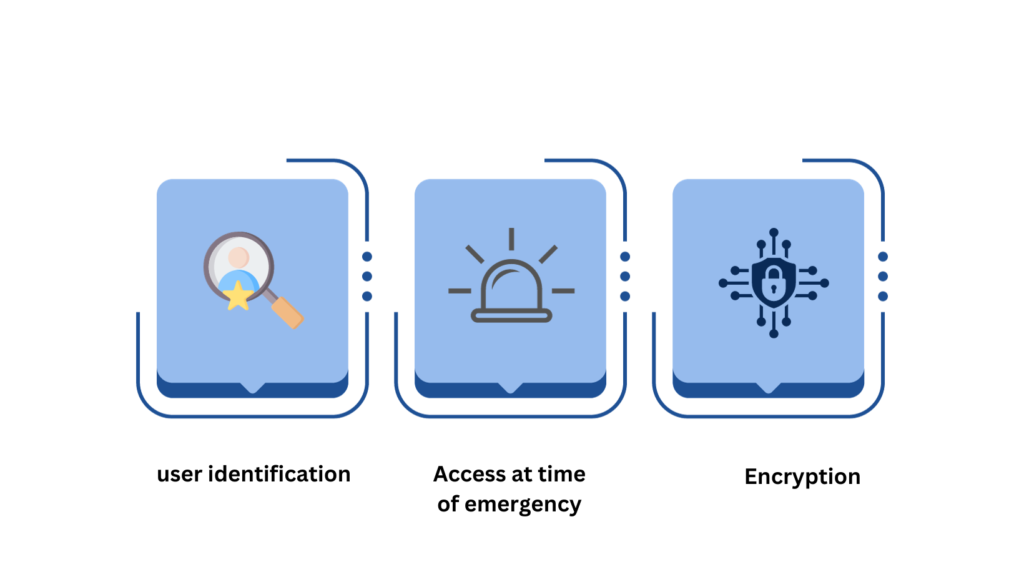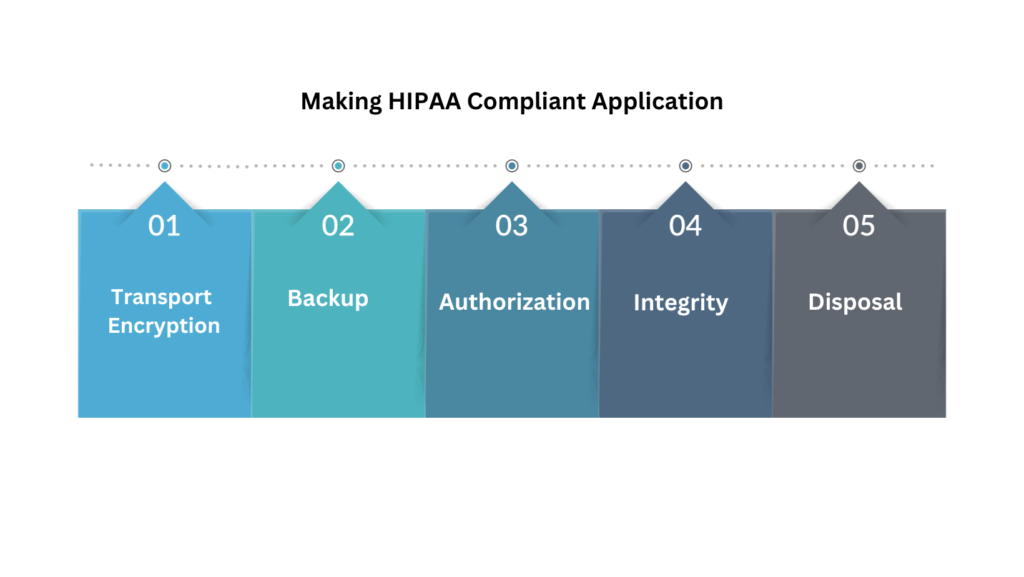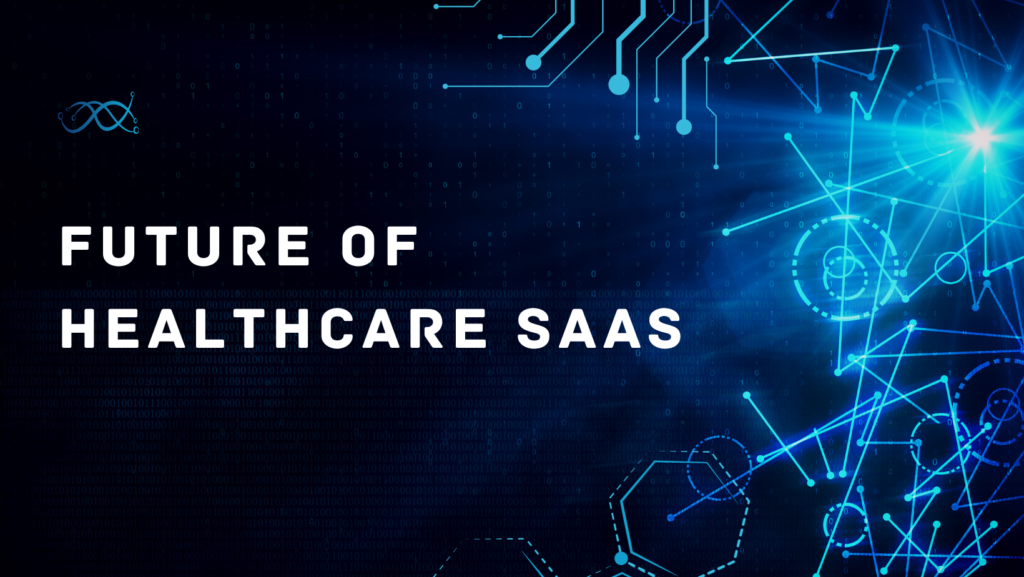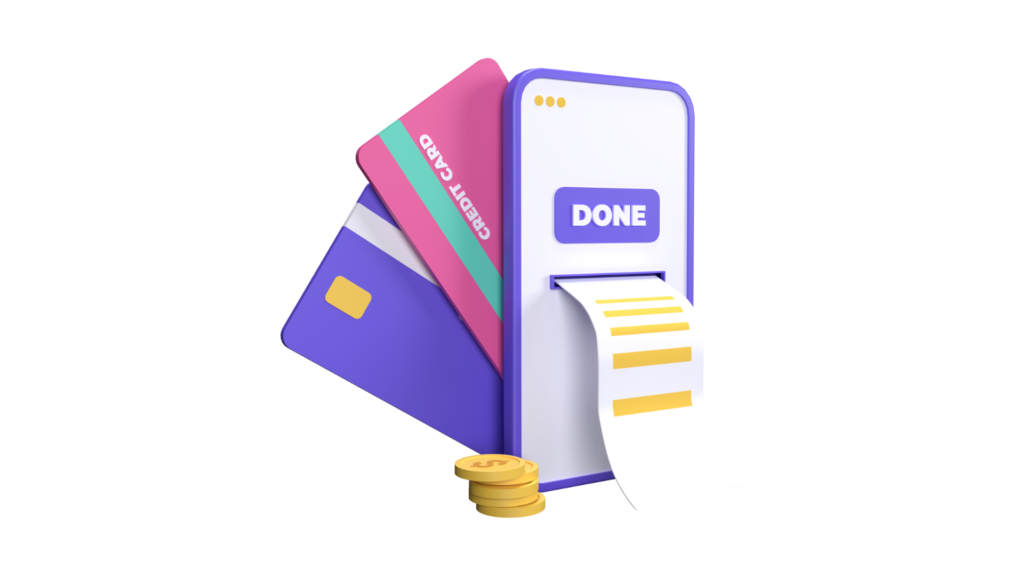Introduction – In our current age, data holds immense value, and industries engaged in data collection, sensitive or not, are obligated to follow regulations to guarantee the safety and security of this data. These compliance measures are implemented to safeguard both the industry and its users. The healthcare sector, in particular, is closely regulated to prevent the misuse of user data in this era dominated by mobile technology.
While compliance standards differ across nations, one that has achieved a universal standing on various fronts is HIPAA – the Health Insurance Portability and Accountability Act.
If you’ve engaged with the healthcare sector, chances are you’ve encountered discussions about HIPAA-compliant apps and their necessity in healthcare application development.
What is the HIPAA act?
The HIPAA Act guarantees the meticulous handling and storage of patient data, particularly within a software platform. It encompasses the sharing of information related to medical billing and healthcare insurance coverage for patients.
Introduced in 1996, the concept of developing mobile apps with HIPAA compliance aimed to regulate the safeguarding of patient data, reduce healthcare costs, and offer health insurance coverage for individuals experiencing job changes. The act underwent its last update in 2013. Specifically, for developers and healthcare enterprises, a crucial aspect is the mandate to ensure that the app effectively guards users against data fraud.
- PHI (Protected Health Information) — Protected Health Information (PHI) encompasses data such as medical bills, MRI scans, emails, test results, and other medical information. Additionally, geolocation details within a specific region are also categorized as PHI.
- CHI (consumer health information) —Consumer Health Information (CHI) pertains to data obtained from sources like fitness trackers, including details such as calories burned, heart rate readings, and the number of steps taken.
What Makes HIPAA Compliance Important?
HIPAA compliance is crucial for healthcare institutions and patients alike, serving as a comprehensive act designed to benefit both parties. A thorough understanding of its importance is essential for stakeholders involved in the development of HIPAA-compliant software.
For Patients:
- Patient information cannot be disclosed without their explicit consent – HIPAA compliance mandates that only healthcare professionals can share patient information with relevant stakeholders, and such sharing is limited to those involved in healthcare operations, ensuring heightened confidentiality and privacy.
- Billing professionals and prescription vendors are prohibited from forwarding patients’ information – Stakeholders, aside from healthcare professionals, are restricted from transmitting patient information.
- Patients must be notified in case of a data breach – Patients retain full rights to their medical details, facilitating seamless data sharing among various healthcare institutions.
For Hospitals:
The significance of developing a mobile app with HIPAA compliance for hospitals becomes evident when considering the repercussions of non-compliance. Failure to adhere to these regulations puts hospitals at risk of substantial fines. In cases of individual data breaches, fines can range from $1,000 to $1 million.
Several instances illustrate the substantial costs hospitals incur when breaching HIPAA compliance, impacting both their finances and reputation. In 2015, a Massachusetts hospital faced a $218,000 fine for jeopardizing the data of over 500 patients due to their file-sharing application not meeting HIPAA security requirements.
How to Make HIPAA Compliant Mobile Apps?
Creating healthcare apps compliant with HIPAA standards can be challenging for developers, requiring modifications in both features and design to meet the necessary criteria.
Leveraging our experience in developing over 70 mHealth solutions, we have crafted a dedicated checklist for ensuring HIPAA compliance in software development. Here’s an overview.
To achieve HIPAA-compliant software development, it is essential to adhere to the four main rules:
- Privacy
- Security
- Enforcement
- Breach
As an enterprise, it is essential to address all four rules, but as a specialized mHealth development company, our primary focus revolves around adhering to HIPAA privacy and security rules, which predominantly involve implementing physical and technical safeguards.
Physical Safeguards
Physical safeguards encompass securing the backend, network for data transfer, and devices operating on Android or iOS to prevent compromise, loss, or theft. Ensuring the security of applications involves implementing authentication, making it impossible to access apps without proper authentication—achievable through a multi-factor authentication system.
Technical safeguards
Technical safeguards are centered on fully encrypting data during transfer or storage on servers and devices. Key practices in technical safeguard measures involve:
- Implementing an emergency access process
- Enforcing unique user identification
- Enabling automatic logoff
An additional recommended practice in this context is adhering to the principle of minimum necessity:
- Only collect the data essential for your needs, avoiding unnecessary accumulation.
- Store data for the required duration and refrain from retaining it longer than necessary for operational purposes.
- Prevent the transmission of PHI data through push notifications and avoid inadvertent exposure in logs and backups.
Steps to Create HIPAA-Compliant Apps
- Seek Expert Guidance: Due to the complexity of HIPAA compliance, it’s advisable to consult with experienced healthcare app developers or a reputable HIPAA-compliant software development company. Their expertise can simplify the process and enhance preparation.
- Evaluate Patient Data: Identify and analyze the patient data that falls under Protected Health Information (PHI), which includes information stored, shared, and managed through the mobile app.
- Use HIPAA-Compliant Solutions: Opt for third-party solutions that are already HIPAA-compliant, known as Infrastructure as a Service (IaaS). Platforms like Amazon Web Services and True Vault offer HIPAA-compliant infrastructure, ensuring data security.
- Secure Sensitive Data: Implement robust security measures, including multiple layers of encryption, to safeguard sensitive patient data and prevent security breaches.
- Maintain and Test Security: Regularly test your app for security vulnerabilities, especially after updates. Promptly addressing any issues identified during testing helps maintain a secure and compliant environment.
Maintenance is an ongoing requirement to ensure the continued safety and security of HIPAA-compliant application development. Once a HIPAA-compliant app is developed, regular updates are essential to prevent security breaches.
Generic Features of a HIPAA Compliant Applications

While healthcare applications may vary, certain features are shared across all HIPAA-compliant apps. Explore our comprehensive Health Application Development Guide for detailed insights into the development process.
User Identification:
To authenticate users in a HIPAA-compliant mobile app, implementing a PIN or password is a recommended approach. Enhance security by incorporating biometric identification and smart cards for an extra layer of protection.
Emergency Access:
Consider the potential impact of natural emergencies on network conditions and essential services. Although not a direct requirement, having provisions to address such instances is a prudent decision.
Encryption:
Ensure the security of stored or transmitted data by employing encryption measures. Services like Google Cloud and AWS, utilizing Transport Layer Security 1.2, offer end-to-end encryption. While TLS is sufficient, reinforcing it with Advanced Encryption Standard (AES) encryption is advisable.
Which Healthcare Apps Should Comply With HIPAA rules?
Determining which applications need to adhere to the HIPAA privacy rule is primarily based on three criteria when evaluating the necessity for HIPAA compliance in mobile apps.
Entity
When an application is utilized by a covered entity such as a hospital, physician, or healthcare insurance provider, it is likely to adhere to the requirements of HIPAA-compliant software development.
When discussing entities, it’s crucial to consider the Privacy Rule, which outlines what constitutes Protected Health Data and identifies the responsible party for ensuring the confidentiality of personal information details.
1.Covered Entities
Covered Entities are described as healthcare organizations, providers, or private practices engaged in the transmission of health information. This encompasses various entities such as pharmacies, nursing homes, and insurers, all of which are obligated to adhere to the regulations outlined by the Health Insurance Portability and Accountability Act (HIPAA).
2.Business Associates
Business Associates refer to entities that offer services to covered entities and are tasked with managing Protected Health Information (PHI). These organizations are accountable for the collection, storage, and administration of PHI on behalf of the covered entities. Examples of business associates encompass software and cloud service providers, legal professionals, and accountants.
Data
Data in HIPAA-compliant mobile app primarily focuses on Protected Health Information (PHI), which includes any medical information capable of identifying an individual and data generated, used, or disclosed during the provision of healthcare services like diagnosis or treatment.
PHI comprises two components: personally identifiable information and medical data. It’s crucial to emphasize that PHI only arises when personally identifiable information is connected to medical data.
Software security
Software security is the final determinant for categorizing healthcare app development under HIPAA rules. It involves the technology employed and encompasses various standards for safeguarding and controlling access to electronically protected health information (ePHI).
These standards predominantly include measures for integrity, audit trails, and access controls.
How much does HIPAA compliance application development cost?
The cost of developing a HIPAA-compliant application typically ranges from $45,000 to $300,000, depending on various factors such as the app’s complexity, the geographical location of the development agency, the size of the hired team, and the number of user roles (user, admin, staff, etc.). Prioritizing core features during the MVP stage and creating a project plan aligned with the budget is crucial for ensuring a cost-effective outcome.
Factors influencing the cost of HIPAA compliance application development include:
- The app’s overall complexity
- The location of the app development agency
- The size of the hired team for app development
- The number of user roles required for the app (user, admin, staff, etc.)
Consider the following options when finalizing your development team:
- In-house team: While hiring in-house developers is effective for those with an unlimited budget, building a team from scratch poses risks such as a lack of business analysis, project management, and development expertise. Ensuring the team possesses the necessary skills is crucial for successful project management.
- Freelancers: Hiring freelancers may be cost-effective, but their lack of expertise and resource management skills can impact the overall quality and productivity of the app.
- Outsourcing to a dedicated app development agency: Opting for a dedicated app development agency, particularly in regions like Asia, offers the best balance of quality and cost. This approach allows you to optimize your development budget while benefiting from the agency’s exceptional field expertise.
Steps Followed by Digiatto IT services For Making HIPAA Compliant Application

Digiatto IT Services prioritizes a safety-first mobile app development approach emphasizing the protection of user data in every scenario. Whether creating an MHealth app or on-demand software, our focus remains on ensuring the security of users’ data.
In the process of developing the HIPAA-compliant mobile app, our role as a custom healthcare software development company involves adhering to various requirements. Let’s explore these requirements.
1. Transport Encryption
Ensuring HIPAA compliance in software development requires mandatory encryption of health data during transmissions. Our initial step involves utilizing HTTP protocols and SSL for this purpose. When data needs to be transmitted within the body of POST requests during client-server data transfer, we encrypt it on the sender’s end and decrypt it on the receiver’s side.
2. Backup
Our selected hosting providers provide reliable recovery and backup services, guaranteeing data preservation during emergencies or accidents. For instance, in cases where the web software sends data elsewhere, messages are securely backed up, stored, and made accessible only to authorized staff.
3. Authorization
As a healthcare app development company, we specialize in constructing and enhancing your medical app to fortify authorization. Our approaches include auditing access controls and securing logins, ensuring that data access is restricted to authorized personnel.
4. Integrity
In the creation of a HIPAA-compliant mobile app, it is imperative to establish an infrastructure that guarantees the security of information during collection, storage, and transfer, preventing any intentional or accidental alterations.
5. Disposal
To ensure the security of sensitive information, it is crucial to permanently dispose of archived and expired backup data. Our approach involves safely and irreversibly eliminating all unused data.
How do we manage PHI collection, transmission, and storage?
Managing the collection, transmission, and storage of PHI involves addressing three key scenarios:
- During data transit – safeguarding information as it travels between devices and servers. We employ advanced cipher suites and TLS, with additional measures like certificate pinning in situations where devices operate in untrusted networks, such as public Wi-Fi.
- On the server side – once data resides in server storage, our PHI management process includes provisions for key rotation, key management, encrypted backup, audit logging, and more.
At rest on the device – when data is stored on iOS and Android devices offline, robust encryption measures are implemented to prevent unauthorized access and potential penalties or fines.
Fueled by the repercussions of the COVID-19 pandemic on healthcare, we are on the brink of an era where digital healthcare transformation is poised to become the standard.
Digiatto IT Services is a leading healthcare technology consulting firm, boasting a wealth of experience and an in-depth understanding of the industry With our cutting-edge technological capabilities, we are well-equipped to assist in the development of secure eHealth software, compliant with all HIPAA regulations.
Get in touch with our healthcare experts to embark on your HIPAA-compliant app development journey!
FAQ
Q. Is there any certification required to build a HIPAA secure app?
Ensuring compliance with the guidelines established by relevant authorities is imperative for developing a HIPAA-secure mobile app.
Q. How to make an app HIPAA compliant?
To ensure HIPAA compliance in app development, follow these essential steps:
- Start with a robust business idea: Clearly define the purpose and benefits of your HIPAA-compliant mobile app, considering your target audience.
- Choose a dedicated mHealth development company: Selecting the right development company with expertise in healthcare app development is crucial.
- Develop an MVP: Build a Minimum Viable Product to test your app’s viability, gather user feedback, and enhance features based on real-world usage. An MVP allows for iterative improvements and better user satisfaction.


